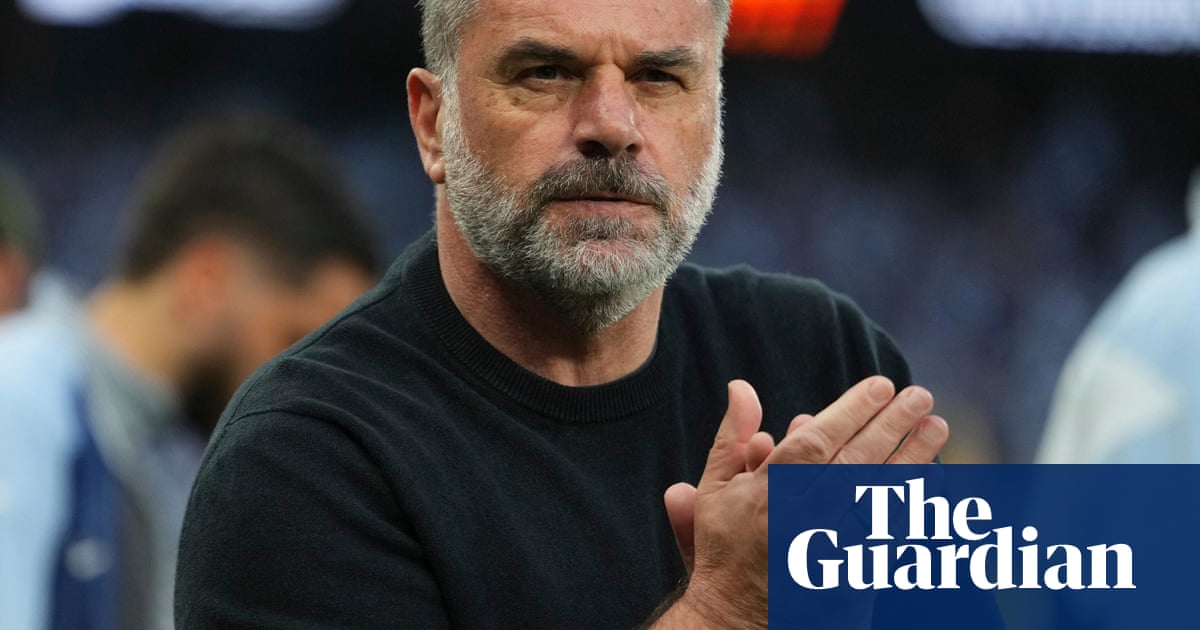Ange Postecoglou took Tottenham Hotspur on the wildest of rides. A record-breaking run to begin his first Premier League campaign in charge. An injury-riddled slump that led Spurs to within sight of relegation the next season. A promise to win a trophy in his second year. The club’s first piece of silverware since 2008.The sack coming just 16 days later.
All-out attack. Defensive dare. Stirring late comebacks. Calamitous and costly goals conceded at the death.No score was safe. No Spurs supporter, let alone pundit, was left without an entrenched view of his capabilities as a coach. No football fan, whether in north London or as far away as Australia, dared to look away.
The hair-raising adventure is one that Australian football fans have been on before. During Postecoglou’s time in charge of the men’s national team, as the Socceroos failed to earn a point in a horror group at the 2014 World Cup but rallied to win the Asian Cup the following year. When the coach had earlier led Brisbane Roar to a pair of A-League championships, and later won the J1 League with Yokohama F.Marinos and five trophies with Scottish giants Celtic. A manic press in attack. A high line in defence. Goals at both ends. Peaks and troughs across each game, let alone during a full campaign.A rollercoaster ride has always been part of the Postecoglou experience.
Taking the show on the road to Japan and Scotland sparked fresh Australian interest in Postecoglou’s teams and those leagues. But bringing it to the Premier League has steered Australia back to the big time. Not since the days when Tim Cahill, Harry Kewell and Mark Viduka graced the main stage have Australians been given such a solid reason to support a second English team. As fans relished watching Postecoglou rattle the football establishment,Tottenham Hotspur became the hottest club in his distant homeland.
A whirlwind stirred up around a brash foreign managerarriving in the Premier League is nothing new. A laconic Australian demeanour andpress conferences peppered with gratuitous use of the term “mate”– while otherwise doing little to conceal a hard edge and stubborn confidence – left fans as much as the media hanging off his every word, while his compatriots were warmed by a sense of pride. The 59-year-old has been unwavering in his ideals, for better or worse, throughout his coaching journey. Postecoglou is not just comfortable dividing opinion. He often appears to go out of his way to hammer a wedge through it.
But whether Spurs’ ruthless decision to axe a coach who led the club to a European title just 16 days earlier is the right call is much less clear and will remain one up for debate. After a fifth-place finish in the Premier League, just two points and one spot short of a ticket to the Champions League, Postecoglou this season guided Spurs to their lowest top-flight points total in more than a century. Did Spurs pay a heavy price for their commitment to an intense style that caused the heart of the side to be ripped out through injury? Or was the coach handed a poisoned chalice with a thin squad relying too much on talented youth to compete on multiple fronts and then go all-in on a knockout competition in the chase for silverware?
Whether or not their Premier League campaign was truly allowed to just wither away, as Postecoglou has since suggested, Spurs found a back door to the lucrative continental competition on an emotion-charged night in Bilbao. Spurs’ 17-year trophy drought was finally broken with Europa League glory, leading to lifelong memories to be created in the Spanish city and later on the streets of north London, while Postecoglou was lauded back home as one of Australia’s great exports. It was as muchvalidation for Australian footballas a victory for a favourite son. Proof that one of our own not onlybelonged on the global stage, but could conquer it – even if for one night only.
Sign up toAustralia Sport
Get a daily roundup of the latest sports news, features and comment from our Australian sports desk
after newsletter promotion
The response in Australia to Postecoglou’s sacking has, perhaps unsurprisingly, been centred around dismay and disappointment rather than simply one of shock. Spurs, under chair Daniel Levy, are after all a club that sacked Mauricio Pochettino mere months after he took them to the 2019 Champions League final. Another divisive coach in José Mourinho was let go in the week leading into the 2021 League Cup decider. Here is further proof that winning a trophy isn’t necessarily everything in the high stakes world of football, or even just enough to save a coach’s job. Spurs will now have another new manager for the Super Cup against Paris Saint-Germain in August, and never find out whetherseason three under Postecoglou would have been better than season two.
Postecoglou has arrived at a new coaching frontier after being sent packing while still under contract. Where he lands next, whether looking to right any perceived wrongs back in the Premier League or as a breath of fresh air elsewhere in Europe, we can be sure that he will take his principles with him and that Australian football fans will follow.
